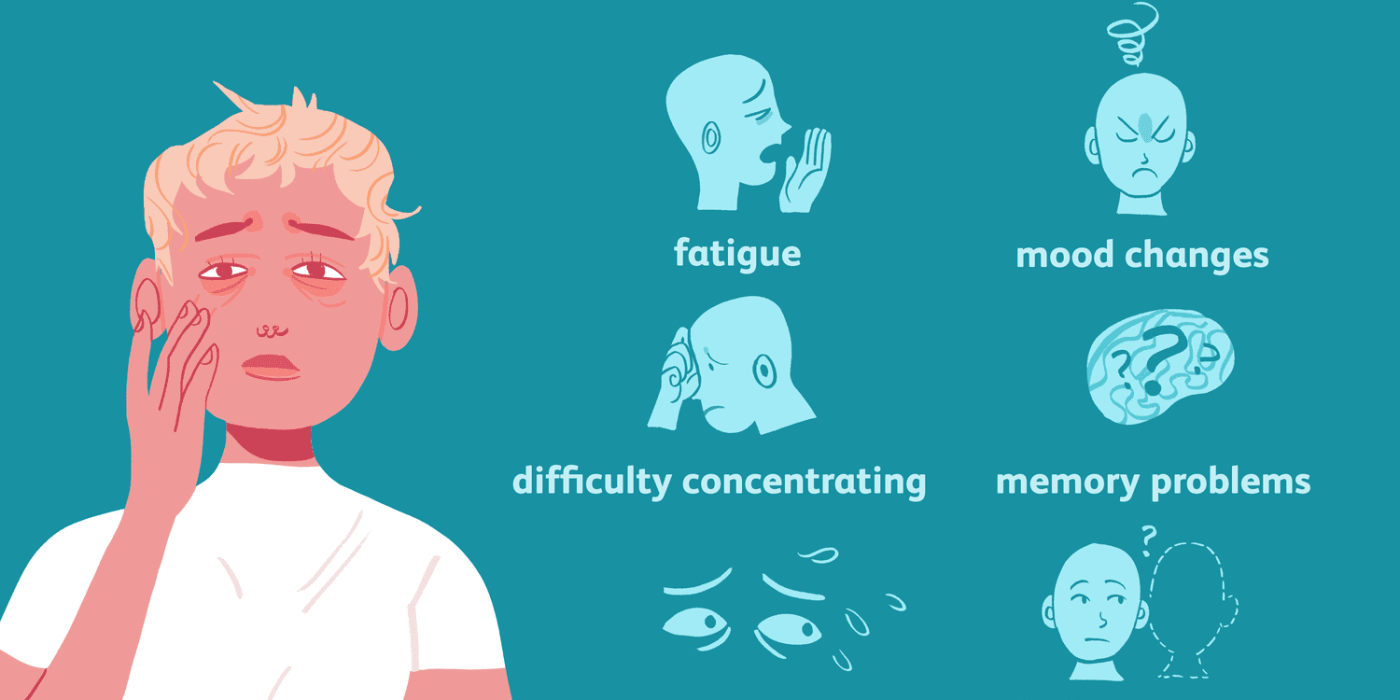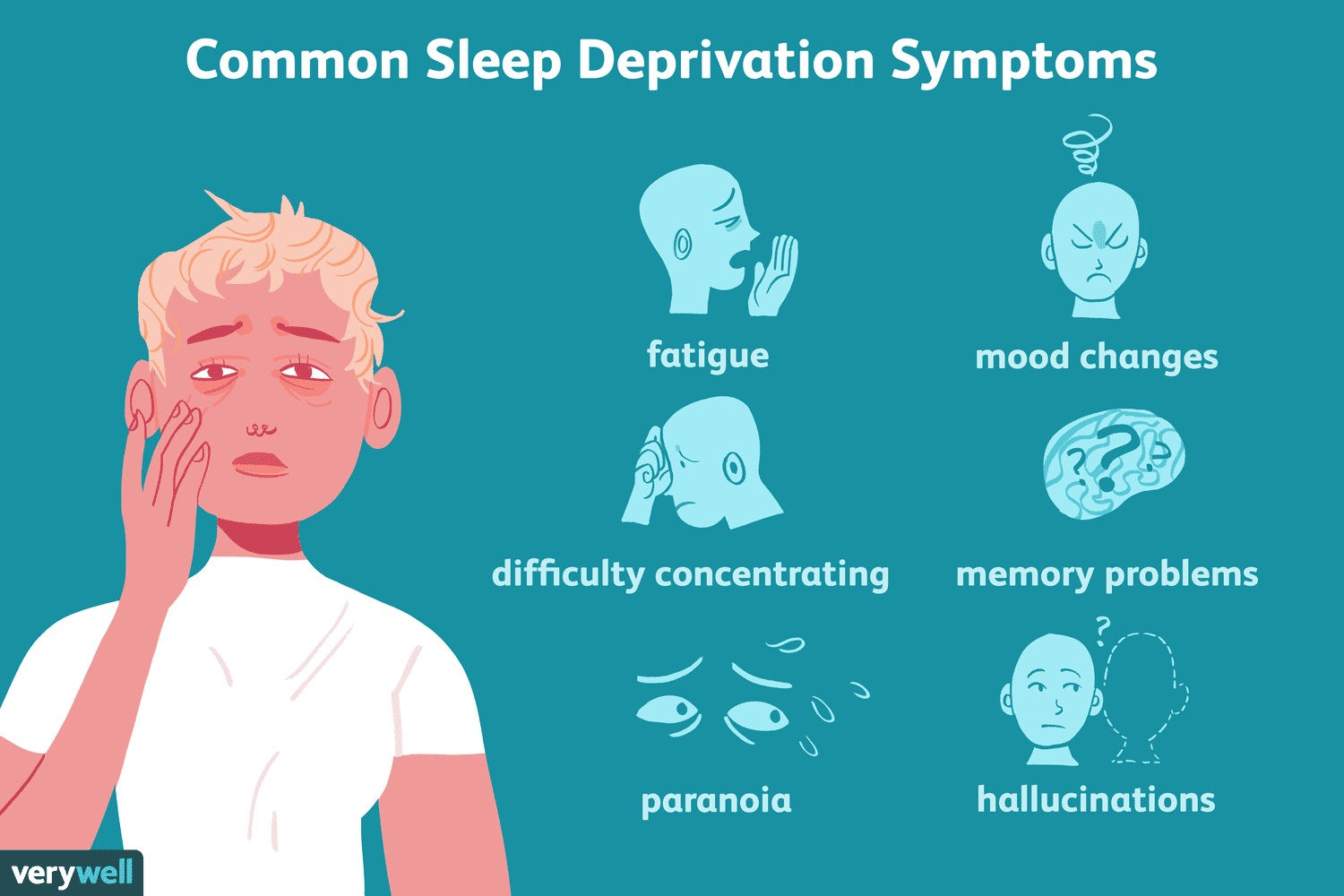Are you wondering about the effects of poor sleep hygiene on your health? Well, let me tell you, neglecting your sleep habits can have a significant impact on your overall well-being. From feeling groggy and irritable to experiencing serious health issues, poor sleep hygiene can wreak havoc on your life. So, let’s dive in and explore the detrimental effects of neglecting your precious sleep.
First and foremost, poor sleep hygiene can lead to a whole range of physical and mental health problems. When you consistently fail to get the recommended amount of sleep, which is usually around 7-9 hours for adults, your body and mind suffer the consequences. Physically, you may find yourself constantly fatigued, lacking energy, and struggling to concentrate throughout the day. Mentally, poor sleep can have a profound impact on your mood, causing irritability, mood swings, and even depression. Furthermore, inadequate sleep has been linked to an increased risk of developing chronic conditions such as obesity, diabetes, cardiovascular diseases, and weakened immune function. It’s clear that neglecting your sleep hygiene can have far-reaching consequences on your health and well-being.
Now that you’re aware of the detrimental effects of poor sleep hygiene, it’s crucial to prioritize and establish healthy sleep habits. By improving your sleep hygiene, you can reap the benefits of a well-rested mind and body. So, let’s delve into the world of sleep hygiene and discover how you can achieve a better night’s sleep.
Effects of Poor Sleep Hygiene on Your Health
Poor sleep hygiene can have significant effects on your overall health and well-being. Sleep hygiene refers to the practices and habits that promote good sleep quality. When these practices are neglected or disregarded, it can lead to various negative consequences for your physical and mental health. Understanding the effects of poor sleep hygiene is crucial for maintaining a healthy lifestyle.
Impact on Physical Health
Poor sleep hygiene can have a detrimental impact on your physical health. One of the most noticeable effects is increased fatigue and daytime sleepiness. When you don’t get enough quality sleep, your body doesn’t have enough time to restore and rejuvenate itself. This can leave you feeling tired and sluggish throughout the day, affecting your productivity and overall functioning.
In addition to fatigue, poor sleep hygiene can also contribute to weight gain and obesity. Lack of sleep can disrupt the balance of hormones that regulate hunger and satiety, leading to increased appetite and cravings for unhealthy foods. It can also affect your body’s ability to metabolize carbohydrates, increasing the risk of developing conditions like diabetes.
Increased Risk of Chronic Conditions
Inadequate sleep due to poor sleep hygiene has been linked to an increased risk of chronic conditions. Research has shown that lack of sleep can weaken the immune system, making you more susceptible to infections. It can also contribute to the development of chronic conditions such as cardiovascular disease, high blood pressure, and stroke.
Moreover, poor sleep hygiene can negatively impact your respiratory health. It has been found that individuals with inadequate sleep are more likely to experience respiratory issues such as asthma and allergies. Additionally, sleep deprivation can impair lung function and worsen existing respiratory conditions.
Effects on Mental Health
The effects of poor sleep hygiene extend beyond physical health and can significantly impact your mental well-being. Sleep deprivation can lead to mood disturbances, including irritability, anxiety, and depression. It can also impair cognitive function, affecting your ability to concentrate, make decisions, and retain information.
Furthermore, inadequate sleep can exacerbate existing mental health conditions. It can increase the severity of symptoms in individuals with anxiety disorders, depression, and bipolar disorder. Lack of sleep can also contribute to the development of mental health disorders in susceptible individuals.
Impact on Emotional Regulation
One of the key effects of poor sleep hygiene on mental health is its impact on emotional regulation. Sleep deprivation can make you more prone to emotional reactivity and impulsive behavior. It can lead to heightened stress levels and a decreased ability to cope with daily challenges. This can have a negative impact on your relationships, work performance, and overall quality of life.
In addition to emotional regulation, poor sleep hygiene can also impair your ability to manage and regulate pain. Studies have shown that individuals with chronic pain conditions often experience worsened pain symptoms when they don’t get enough quality sleep. Lack of sleep can lower your pain tolerance and make it harder to manage pain effectively.
Strategies for Improving Sleep Hygiene
Improving your sleep hygiene can help mitigate the negative effects of poor sleep on your health. Here are some strategies to consider:
1. Stick to a regular sleep schedule: Go to bed and wake up at the same time every day, even on weekends.
2. Create a sleep-friendly environment: Make sure your bedroom is cool, dark, and quiet, and invest in a comfortable mattress and pillows.
3. Establish a relaxing bedtime routine: Engage in calming activities before bed, such as reading a book or taking a warm bath.
4. Limit exposure to electronics: Avoid using electronic devices, such as smartphones and laptops, before bed as they can interfere with sleep.
5. Avoid stimulants: Limit your intake of caffeine and nicotine, especially in the evening.
6. Exercise regularly: Engaging in regular physical activity can promote better sleep, but avoid exercising too close to bedtime.
7. Manage stress: Practice stress-reducing techniques, such as meditation or deep breathing exercises, to help calm your mind before bed.
By implementing these strategies and prioritizing good sleep hygiene, you can enhance your overall health and well-being. It’s important to recognize the impact of poor sleep on your health and take steps to improve your sleep habits for a healthier and more fulfilling life.
Key Takeaways: The Effects of Poor Sleep Hygiene on Your Health
- Poor sleep hygiene can lead to difficulty concentrating and decreased productivity.
- It can weaken your immune system, making you more susceptible to illnesses.
- Having poor sleep habits can increase the risk of developing chronic conditions like obesity and diabetes.
- It can negatively impact your mood and mental health, leading to increased stress and anxiety.
- Poor sleep hygiene can also contribute to accidents and injuries due to impaired cognitive function and slower reaction times.
Frequently Asked Questions
Having poor sleep hygiene can have detrimental effects on your overall health. Lack of quality sleep can lead to various physical and mental health issues. Here are five common questions about the effects of poor sleep hygiene on your health:
1. How does poor sleep hygiene affect my physical health?
Poor sleep hygiene can have a significant impact on your physical health. When you don’t get enough sleep or experience disrupted sleep patterns, your body’s ability to repair and regenerate is compromised. This can weaken your immune system, making you more susceptible to illnesses and infections. Additionally, inadequate sleep can increase the risk of developing chronic conditions such as obesity, diabetes, cardiovascular diseases, and even certain types of cancer.
Moreover, poor sleep can affect your hormone levels and disrupt the balance of hormones responsible for regulating appetite. This can lead to an increased appetite and cravings for unhealthy foods, potentially contributing to weight gain and metabolic imbalances.
2. How does poor sleep hygiene impact my mental health?
Poor sleep hygiene can have a profound effect on your mental well-being. Lack of quality sleep can impair cognitive function, making it difficult to concentrate, focus, and retain information. It can also negatively impact your mood, leading to increased irritability, anxiety, and depression.
Furthermore, inadequate sleep can exacerbate existing mental health conditions or increase the risk of developing them. Conditions such as bipolar disorder and schizophrenia have been linked to disrupted sleep patterns. Sleep deprivation can also contribute to the development of mood disorders, including major depressive disorder and generalized anxiety disorder.
3. Can poor sleep hygiene affect my weight?
Yes, poor sleep hygiene can have a direct impact on your weight. When you don’t get enough sleep, it can disrupt the balance of hormones that regulate appetite and satiety. The hormone ghrelin, which stimulates hunger, tends to increase, while the hormone leptin, which signals fullness, decreases. This hormonal imbalance can lead to increased cravings for high-calorie and sugary foods, making it more challenging to maintain a healthy diet.
In addition, sleep deprivation can affect your body’s metabolism. It can lead to insulin resistance, making it harder for your body to regulate blood sugar levels. This can contribute to weight gain and an increased risk of developing obesity and type 2 diabetes.
4. How does poor sleep hygiene impact my immune system?
Poor sleep hygiene can weaken your immune system, making you more susceptible to infections and illnesses. During sleep, your body produces and releases cytokines, proteins that play a crucial role in immune response. When you don’t get enough sleep, the production of these cytokines may decrease, compromising your immune system’s ability to fight off pathogens.
Furthermore, sleep deprivation can also affect the production of antibodies and other immune cells, impairing your body’s ability to defend against viruses and bacteria. This can make you more prone to common colds, flu, and other respiratory infections.
5. Can poor sleep hygiene contribute to cardiovascular problems?
Yes, poor sleep hygiene has been linked to an increased risk of cardiovascular problems. Lack of quality sleep can lead to elevated blood pressure and increased heart rate. Over time, this can strain the cardiovascular system and contribute to the development of hypertension, heart disease, and stroke.
Additionally, sleep deprivation can disrupt the balance of certain hormones involved in cardiovascular health, such as cortisol and adrenaline. This hormonal imbalance can further contribute to the development of cardiovascular issues. It is important to prioritize good sleep hygiene to maintain a healthy heart and reduce the risk of cardiovascular diseases.
How lack of sleep affects health and tips for a good night’s rest
Final Summary: The Impact of Poor Sleep Hygiene on Your Health
When it comes to our overall well-being, we often overlook the importance of good sleep hygiene. However, poor sleep habits can have a significant impact on our health, both in the short term and the long term. The effects of inadequate sleep go beyond just feeling groggy and irritable. It can affect our cognitive abilities, mood, immune system, and even increase the risk of developing chronic health conditions. So, let’s delve into the consequences of neglecting our sleep hygiene and understand why it’s crucial to prioritize a good night’s rest.
One of the immediate effects of poor sleep hygiene is decreased cognitive function. When we don’t get enough sleep or maintain a consistent sleep schedule, our ability to concentrate, learn new information, and make decisions can be compromised. Additionally, inadequate sleep can lead to mood disturbances, making us more prone to irritability, anxiety, and even depression. It’s no surprise that a lack of sleep can impact our emotional well-being and overall quality of life.
In the long term, poor sleep hygiene can have more serious implications for our health. It has been linked to a weakened immune system, making us more susceptible to infections and illnesses. Moreover, chronic sleep deprivation has been associated with an increased risk of developing conditions such as obesity, diabetes, cardiovascular disease, and even certain types of cancer. These findings highlight the importance of establishing healthy sleep habits and ensuring we prioritize sufficient and restful sleep.
In conclusion, the effects of poor sleep hygiene on our health cannot be underestimated. From impaired cognitive function and mood disturbances to a higher risk of chronic health conditions, neglecting our sleep can have far-reaching consequences. It is crucial to prioritize good sleep hygiene by establishing a consistent sleep schedule, creating a sleep-friendly environment, and practicing relaxation techniques before bed. By taking care of our sleep, we can take care of our overall well-being and lead healthier, more fulfilling lives.




